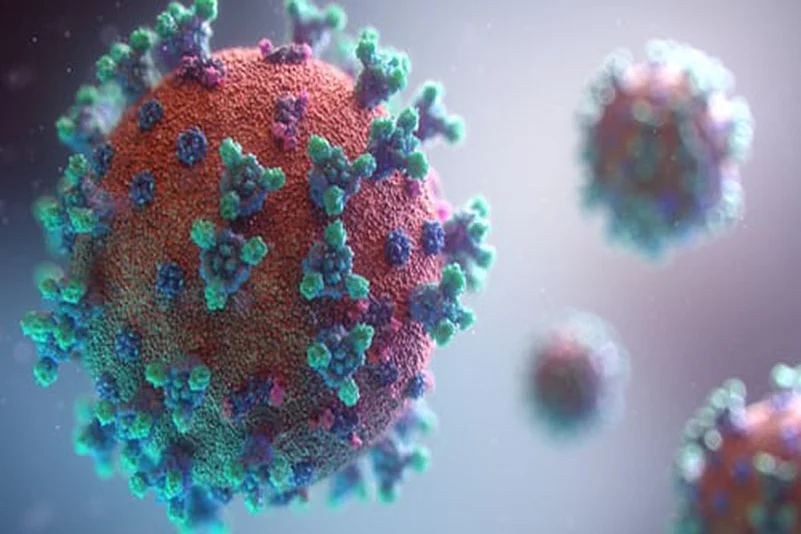Amid rising concerns of a third Covid wave occurring in India and it being driven by the Delta Plus Covid variant, Uttar Pradesh on Friday reported two cases of Kappa variant of SARS-CoV-2.
The presence of the Kappa variant came to light after genome sequencing of 109 samples were recently conducted at King George's medical college in Lucknow.
But what is the Kappa Covid variant and is it new?
According to the Union Health Ministry the Kappa variant is not a new variant and it has been present in the country since February.
It is linked to the B.1.617 constellation of mutations. According to NDTV, the Kappa variant carries over a dozen mutations, of which two have been identified - E484Q and L452R. Because of this, Kappa is also referred to as a "double mutant".
Further, according to officials, the Kappa variant has much less intensity as compared to the Delta variant of the virus.
"Kappa variant was present in the country even during February-March. It was overwhelmed by the delta variant which is a related variant and is much more transmissible and that has been responsible for the second wave we saw. This variant (Kappa) is much less in intensity, it is on the margins and has been replaced by delta largely," NITI Aayog Member (Health) Dr V K Paul said.
However, he added that the Kappa variant has been classified as a variant of interest.
"We should scientifically keep a watch on its severity, transmissibility and vaccine effectiveness and like in other variants we have kept a watch same goes for this. The Kappa variant is also a variant of interest," Paul said.
What is a variant of interest?
According to the US Centers for Disease Control and Prevention (CDC), a variant of interest is defined as, “A variant with specific genetic markers that have been associated with changes to receptor binding, reduced neutralization by antibodies generated against previous infection or vaccination, reduced efficacy of treatments, potential diagnostic impact, or predicted increase in transmissibility or disease severity.”
What are the most likely attributes of variants on interest?
- Specific genetic markers that are predicted to affect transmission, diagnostics, therapeutics, or immune escape.
- Evidence that it is the cause of an increased proportion of cases or unique outbreak clusters.
- Limited prevalence or expansion in the US or in other countries.
How to deal with variants of interest?
According to the CDC, a variant of interest of coronavirus “might require one or more appropriate public health actions, including enhanced sequence surveillance, enhanced laboratory characterization, or epidemiological investigations to assess how easily the virus spreads to others, the severity of disease, the efficacy of therapeutics and whether currently authorized vaccines offer protection.”
According to NDTV, India has so far submitted 3,693 Kappa samples, the highest in the world.


























